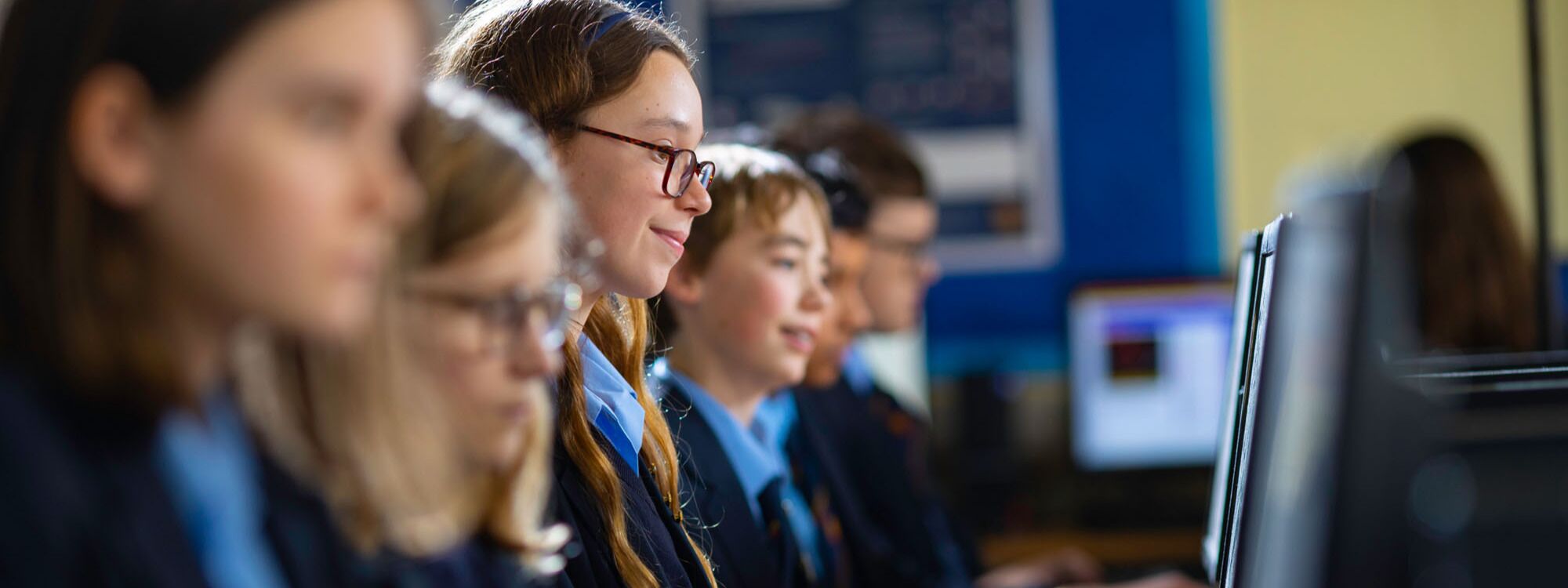
Computing
Back“A ship in port is safe, but that is not what ships are for.
Sail out to sea and do new things.”
Grace Hopper
(Developed the first compiler for a
computer programming language)
Staff members
Mrs N Lawton (Head of Department)
Dr C Ashton
Mrs K Chorley
Mr A Lawton
Subject Definition
Computer science is the study of computers and computing, including the art of applying logical thinking to problem solving. Using logic and mathematics, you explore processes such as algorithms to develop solutions. It is about the enhancement of the current and development of future technologies in the IT world.
Subject Purpose
We study computing is to build up essential knowledge and skills that enable learners to participate more readily in the rapidly changing technological world. We aim to develop skills that promote creative, logic-driven solutions to problems.
As our reliance on technology increases, so does our need for skilled computer scientists. New applications and systems will be developed that we will rely on in the future. Computer scientists solve complex problems, develop new products and services, and improve our lives in countless ways. Not only can our students start their journey to becoming computer scientists, but also lead the way to advances in many fields, including medicine, finance, and manufacturing.
Students will leave with perseverance, technical skills and knowledge that can be used in everyday life.
KS3 Overview
Students will take a journey through the Computing curriculum. Starting with the history of the computing and moving through the many more topics including Cyber Security, Data Representation and Python Programming. The aim is to allow all students to leave school with a sound overview of the wider use of computers in the modern world, as well as to prepare those that choose to Computer Science, for their GCSEs.
KS4 Overview
GCSE Qualification Information
Course title: Computer Science (9-1)
Exam board: OCR
Course code: J277
GCSE specifications in computer science enable students to understand and apply the fundamental principles and concepts of computer science, including decomposition, logic, algorithms, and data representation. Students will learn to analyse problems in computational terms through practical experience. They will learn to design, write and test programming solutions in Python. The will have to apply logic and critical thinking and be analytical to come up with innovative and creative solutions. They will also develop an understanding of the digital systems and how they interact.
Computer Systems (Paper 01)
80 marks
1hour 30minutes exam duration
Introduces students to the central processing unit (CPU), computer memory and storage, data representation, wired and wireless networks, network topologies, system security and system software. It also looks at ethical, legal, cultural and environmental concerns associated with computer science.
Computational Thinking, Algorithms and Programming (Paper 02)
80 marks
1hr30 exam duration
Students apply knowledge and understanding gained in component 01. They develop skills and understanding in computational thinking: algorithms, programming techniques, producing robust programmes, computational logic and translators.
Practical Programming
Students are to be given the opportunity to undertake a programming task(s) during their course of study which allows them to develop their skills to design, write, test and refine programmes using a high-level programming language. Students will be assessed on these skills during the written examinations, in particular component 02 (section B).
